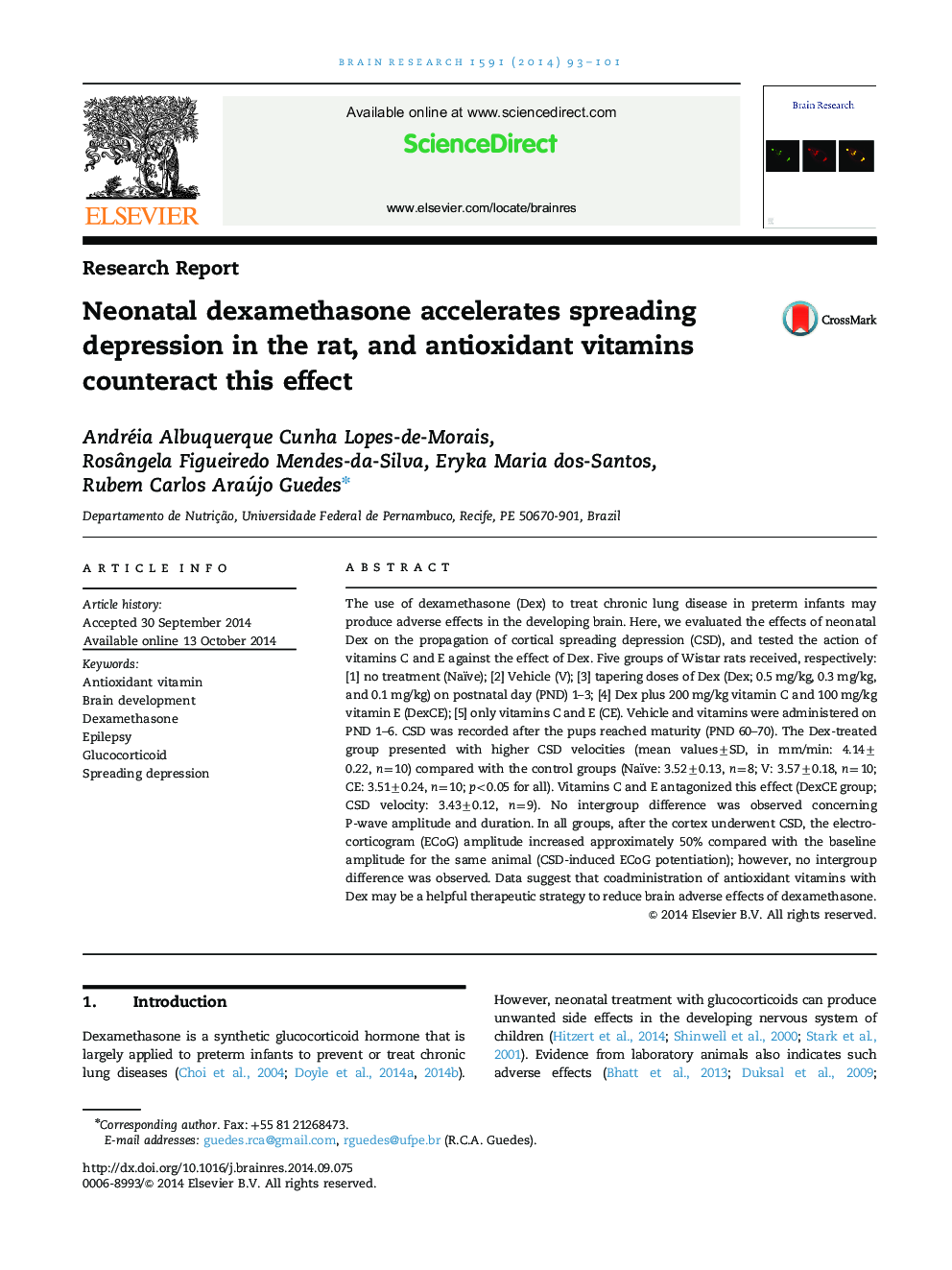| Article ID | Journal | Published Year | Pages | File Type |
|---|---|---|---|---|
| 6263226 | Brain Research | 2014 | 9 Pages |
â¢We treated developing rats with dexamethasone (Dex) and/or vitamins C and E.â¢We studied spreading depression (CSD) parameters and CSD-induced ECoG potentiation.â¢Dex accelerated CSD, but did not change ECoG potentiation.â¢The vitamins C and E counteracted the Dex effect.â¢Neonatal Dex therapy may benefit from vitamins C and E coadministration.
The use of dexamethasone (Dex) to treat chronic lung disease in preterm infants may produce adverse effects in the developing brain. Here, we evaluated the effects of neonatal Dex on the propagation of cortical spreading depression (CSD), and tested the action of vitamins C and E against the effect of Dex. Five groups of Wistar rats received, respectively: [1] no treatment (Naïve); [2] Vehicle (V); [3] tapering doses of Dex (Dex; 0.5 mg/kg, 0.3 mg/kg, and 0.1 mg/kg) on postnatal day (PND) 1-3; [4] Dex plus 200 mg/kg vitamin C and 100 mg/kg vitamin E (DexCE); [5] only vitamins C and E (CE). Vehicle and vitamins were administered on PND 1-6. CSD was recorded after the pups reached maturity (PND 60-70). The Dex-treated group presented with higher CSD velocities (mean values±SD, in mm/min: 4.14±0.22, n=10) compared with the control groups (Naïve: 3.52±0.13, n=8; V: 3.57±0.18, n=10; CE: 3.51±0.24, n=10; p<0.05 for all). Vitamins C and E antagonized this effect (DexCE group; CSD velocity: 3.43±0.12, n=9). No intergroup difference was observed concerning P-wave amplitude and duration. In all groups, after the cortex underwent CSD, the electrocorticogram (ECoG) amplitude increased approximately 50% compared with the baseline amplitude for the same animal (CSD-induced ECoG potentiation); however, no intergroup difference was observed. Data suggest that coadministration of antioxidant vitamins with Dex may be a helpful therapeutic strategy to reduce brain adverse effects of dexamethasone.
